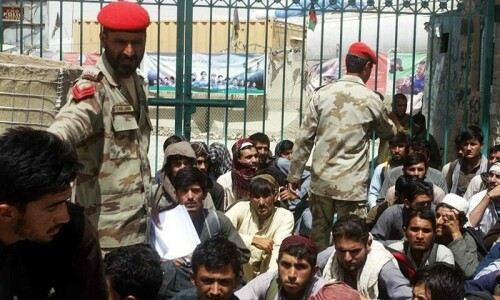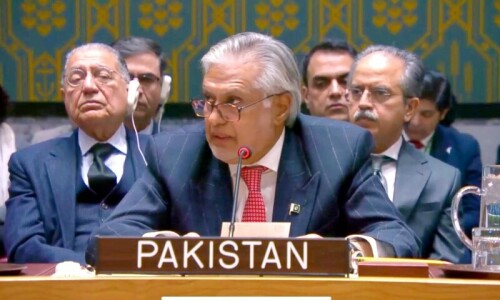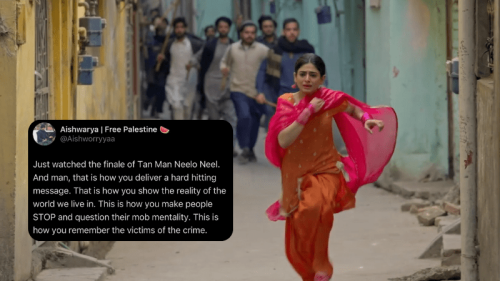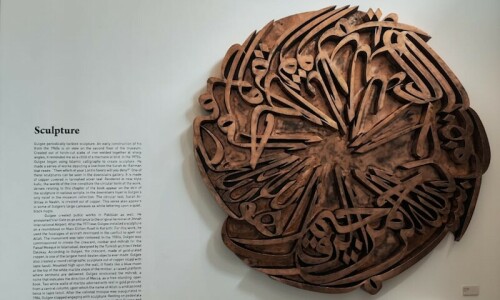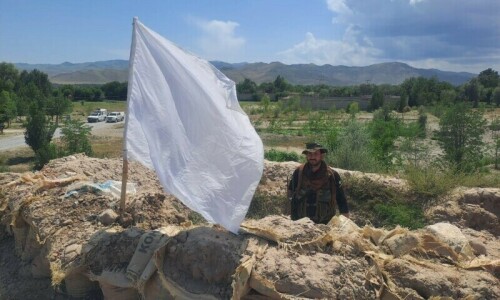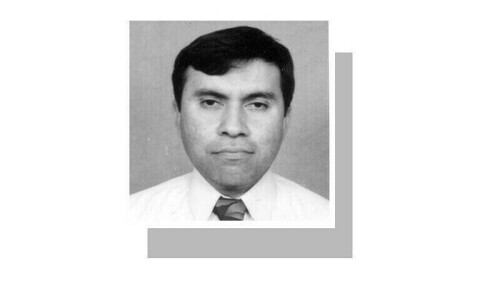DEATHS and disappearances, of the enforced kind in particular, in Balochistan do not seem to gain much traction in the media for reasons that, reinterpreting the words of former US defence secretary Donald Rumsfeld, fall into the ‘known unknowns’.
Known because almost every Pakistani knows exactly what these reasons are and unknown because it’s deemed unhealthy to mention those openly so, like the proverbial elephant in the room, they go unacknowledged.
Having said that let me ask how many of us know who Hayat Baloch was and what happened to him on the eve of Independence Day in Turbat. To be honest I, for one, would have been totally ignorant of his murder had it not been for social media and a BBCUrdu.com report.
This last Thursday, Hayat Baloch was working on a farm, harvesting dates with his father Ma’azar Mohammed, a social worker and a small dates trader, when just before noon, passing paramilitary Frontier Corps (FC) vehicles were targeted by an IED explosion on a road adjacent to the date farm.
His father’s protestations were ignored. He was tied up, carried to the road outside, dumped on the ground and shot dead.
Shortly afterwards, FC personnel, who fanned out in the area, allegedly entered the farm and started roughing up Hayat and accusing him of being complicit in the explosion, ignoring his father’s protestations that the young man had not left his side since early that morning.
They later tied him up before carrying him off to the road outside the farm, where they dumped him on the ground before one of the FC men in plainclothes fired shots at him from his service rifle and abandoned him bleeding from gunshot wounds.
He was dead before any medical aid could be provided. Hayat’s brother was at work when he was alerted to the tragedy and rushed to the site. Later, the family lodged the FIR in which the whole incident is detailed. The father and the mother also say they recognise the killer and can identify him.
FC is reported to have handed over the man who killed the young man to the police. The Turbat SSP says he was informed that the FC internal inquiry found that the paramilitary soldier “reacted in haste” and his extreme actions were a transgression of his powers and authority.
Incidents such as this one happen all the time in far-flung areas and seldom tickle the fancy of the members of the Fourth Estate as they seem bogged down in an existential fight, a debilitating struggle merely to keep their head above water.
Any bold reporting or outspoken journalism is beyond us. So it’s thanks to the social media and BBCUrdu.com that this tragic incident came into the public domain. Although the Turbat SSP has pledged that he will ensure Hayat’s family will get justice, past experience is not very encouraging.
The broad daylight murder of a family on the motorway near Sahiwal in January 2019 by policemen belonging to the Counter-Terrorism Department of the Punjab Police became a test case for the new PTI government, a few months after its ascent to power, but it was one in which it failed to ensure the dispensation of justice.
There is little hope as the clock ticks that justice would ever be given to the family of Naqeebullah Mehsud who was killed in a patently fake encounter by a Karachi police unit run by then SSP Rao Anwar. Naqeebullah’s stoic father was killed by cancer while waiting for the case to conclude.
And these are incidents that somehow find their way into the public domain. For each of these, there are dozens which happen in remote parts unreported; where they find mention these are mostly based on just the official version of events.
Hayat Baloch was a BSc (Physiology) final year student at Karachi University and would proudly tell friends he was the first member of his family from a poor, working class background to be able to reach university.
His family were pinning their hopes of climbing out of their hand-to-mouth existence on him as they believed he’d be able to get a good job once he graduated. One of Hayat’s close friends told the BBC that he was preparing for the civil services exam and working very hard to realise his dream.
The empathetic young man was seen as an angel by the poor people of his area. Whether they needed help with hospital appointments in Karachi or were seeking admission to the city’s educational institutions, he thought nothing of spending the whole day running around, helping them.
When the university was closed down due to the Covid-19 emergency, he told his best friend it was a mixed blessing. His course might be delayed but he was heading back to Turbat to help his father and earn some money in order to support himself for the next term.
This was a tragedy waiting to happen because of the culture of impunity that law-enforcement officials seem to enjoy. Our forces have battled well-entrenched religious terrorists at great cost to their own lives in former Fata.
Equally, many have been killed by terrorists in bloody attacks by separatists in Balochistan. If this has led to a trigger-happy culture then we have got it very wrong. How can alienating the local population of an area you are attempting to establish your writ over be prudent?
Gratefully, some of the proxy armed groups seem to have been shut down by the authorities but continued disappearances and excesses by law-enforcement forces need to be reined in too. Brutality can rarely be the route to winning lasting peace.
Tailpiece: Saeen Taj Joyo, Sindhi writer-poet-teacher, who was nominated for a Pride of Performance Award in the President’s August 14 Honours List, has reportedly declined the award, saying it should be given to those who have taken away his son.
Sarang Joyo was a researcher at SZABIST and a familiar face at rallies and meetings to call for the return of the victims of enforced disappearances in Sindh. Along with his family, he lived in a modest two-room home in Karachi’s Akhtar Colony, on the fringe of DHA.
On Aug 11 he was taken from his home and remains missing till the writing of this report.
The writer is a former editor of Dawn.
Published in Dawn, August 16th, 2020




















